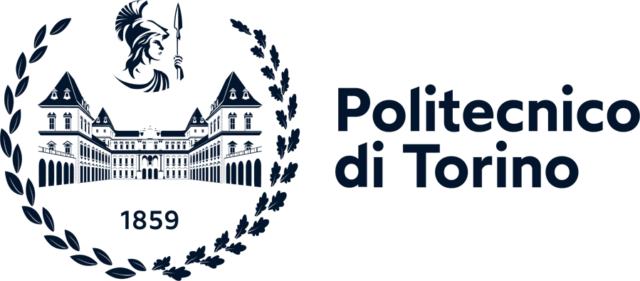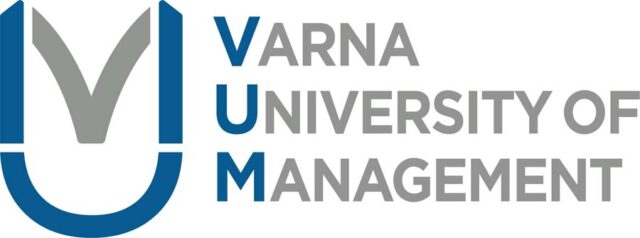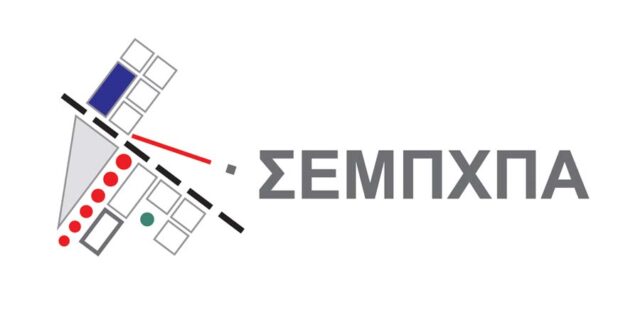www.uth.grUniversity of Thessaly (Lead Partner)

University of Thessaly, with 37 Departments, and 8 schools is a University with its own identity and with a prominent position in the national educational system. University of Thessaly provides undergraduate and postgraduate programs and extracurricular modules in specific research and business fields, for over 43.000 students. The main mission of the University of Thessaly is the promotion of scientific knowledge through research and the contribution to the cultural and economic development of the local community and wider society. It is known for its excellent research performance and outstanding scientific achievements, in accordance with the international standards. The excellent equipped Laboratories of the different Departments and Research Units have several well-trained researchers to support them.
The Department of Planning and Regional Development (DPRD) of the University of Thessaly (UTh) started operating in 1989 and is the first Department in Greece to offer a University Diploma in Spatial Planning, Urban Planning and Regional Development. The Department offers a five-year undergraduate study program, several postgraduate programs (including a number of interdepartmental ones), and a doctoral degree.
The Research Unit of Infrastructure, Technology Policy and Development (RUITEPOD) was established in 1996. It concentrates on research and education in the fields of analysis, planning, management and evaluation of technical,
economic and social infrastructure with focus on local and regional development, infrastructure planning and development, technological policy and innovation / entrepreneurship. RUITEPOD members have participated in more than 80 research projects in infrastructure, technology policy, spatial development, urban development, tourism, innovation, and entrepreneurship etc. RUITEPOD has participated in EU funded projects such as: Erasmus +, BalkanMed, SMART, EQUAL, RECITE (ECOSERT), RIS, INNOREGIO, INEVAL / Leonardo etc., partnering up with Educational Institutions and other bodies / agencies all over Europe and Asia. It also has extensive experience in working with local authorities and stakeholders (consulting, development of Local Operational Plans etc.) at regional and national level and, in this context, has implemented a variety of participatory and stakeholder engagement activities.


www.polito.itPolito
 Established in 1859, POLITO is the oldest technical University in Italy and one of the most prestigious public institutions of the country for education and research in engineering, architecture, planning and design. Ranking among the first twenty European technical universities, it is globally recognized as a high-quality centre for education and research. At POLITO, around 900 Professors and Researchers carry out research and provide education to over 35.000 students, of which 5.000 are international students coming from more than 100 countries. Educational curricula are distributed on a wide catalogue of degree courses including 29 Master of Science and 16 Doctoral courses, of which more than 30% are fully organized and taught in English. Among the offered programmes, of particular relevance for the proposed project are the M.Sc. in Digital Skills for Sustainable Societal Transitions, M.Sc. in Planning for the Global Urban Agenda and M.Sc. in ICT for Smart Societies.
Established in 1859, POLITO is the oldest technical University in Italy and one of the most prestigious public institutions of the country for education and research in engineering, architecture, planning and design. Ranking among the first twenty European technical universities, it is globally recognized as a high-quality centre for education and research. At POLITO, around 900 Professors and Researchers carry out research and provide education to over 35.000 students, of which 5.000 are international students coming from more than 100 countries. Educational curricula are distributed on a wide catalogue of degree courses including 29 Master of Science and 16 Doctoral courses, of which more than 30% are fully organized and taught in English. Among the offered programmes, of particular relevance for the proposed project are the M.Sc. in Digital Skills for Sustainable Societal Transitions, M.Sc. in Planning for the Global Urban Agenda and M.Sc. in ICT for Smart Societies.
POLITO international education network features over 1.000 agreements with EU and non-EU universities and research centres, including 100 double degrees as well as international campuses in China and Uzbekistan. POLITO has been able to reconcile tradition and innovation by being deeply rooted locally and, at the same time, by establishing itself as an attractive University for students and talents coming to study and work from all over the world. Thanks to the quality of its research and to the tradition of liaising with companies, POLITO ensures students a swift work placement and attracts significant investments and collaborations with blue chip companies. POLITO’s experience in European projects span from pure scientific to applied research as well as to international mobility and cooperation. Its staff participated to all major international research programmes such as the present Horizon Europe, Horizon 2020, FP6 and FP7, Erasmus+, LLP, Erasmus Mundus, TEMPUS, EuropeAid etc. Throughout the years POLITO has proved to be one of the top Italian universities for volume of international collaborations and quality of the results achieved, and such trends are increasing and will likely continue to.
The Interuniversity Department of Regional and Urban Studies and Planning (DIST) is the result of a joint venture between Politecnico and the University of Turin. Its core mission focuses on education and research activities in urban studies, spatial planning and the built environment, including the management of historical, cultural, economic, technological, environmental, natural and built heritages. Thanks to its unique interuniversity structure, DIST joins the scientific and cultural approaches of the Polytechnic (architecture, engineering and management) and of the University (political, economic and social sciences). DIST Research team involved in this project proposal is highly interdisciplinary and will contribute the project to uptake a multidisciplinary approach to digital education and its implications for participatory planning processes.

www.vum.bgVarna University of Management (VUM)

Varna University of Management (VUM) is an established business school specialised in social sciences. It was founded in 1992 via a pilot project of the Dutch Government in Bulgaria. In 1999 the institution was awarded its first accreditation as a higher education institution and became the first Bulgarian HEI offering educational programs entirely taught in English. In 2009, it concluded a strategic partnership with Cardiff MET University by which bachelor and master programs for double degree diplomas were introduced. With a decision of the National Assembly as of 21.05.2015(SG 38), the institution was transformed and adopted its current name Varna University of Management.
VUM specialises in Social Sciences and offers study programs in Business, Management, Administration, Tourism and Cultural Industries. It also provides innovative education in Culinary Arts, Food Technologies, Arts, Hospitality as well as in Business Information Systems. VUM’s main achievements are related to research and project development targeting special-interest tourism, culinary arts, hospitality management, sustainable development and use of IT and new technologies in the areas of tourism, services, education and culture.
The students, academics and staff (50% of which come from >50 countries around the world) study at VUM on interdisciplinary BA and MBA programs in modernly equipped campuses in Varna, Dobrich and Sofia. The academic and administrative staff is equally international and creates a stimulating progressive learning and research atmosphere.
- Administrative Capacity
- VUM has established and maintains an active network of >120 partner universities from >50 countries on five continents including Europe, Asia, South and N. America, Africa. Due to the numerous mobilities financed and realised on Erasmus+
- VUM actively communicates, has signed framework agreements for cooperation and receives regular feedback from over 50 business organisations at the national level and participates in 5 national clusters
- VUM was selected by the Ministry of Economy of Bulgaria to organise and manage one of the four inter-university entrepreneurship centres in Bulgaria, aimed to improve the entrepreneurial culture of university graduates and to support them in establishing start-ups
- VUM has proven experience in the development and management of applied scientific, research, education and other projects financed by the structural funds and the EU programs such as Atlantis, Tempus, LLL, Erasmus+, Europe for Citizens, JOP Black Sea Basin, INTERREG. The institution is the first HEI in Bulgaria that was initiator and coordinator of successfully finished projects in the EC programs TEMPUS IV, Atlantis and Erasmus+.
- Research Capacity
A significant number of the VUM lecturers publish in international scientific journals whereby they enhance the image of the higher school as an incubator for qualitative scientific work:
- VUM hosts a Regional Centre of the Bulgarian Academy of Sciences
- VUM publishes European Journal of Tourism Research (EJTR, http://ejtr.vumk.eu, indexed in Scopus and Web of Science) with an editorial board of 52 leading lecturers and researchers in the tourism field from 26 countries, as well as the Journal of Pedagogy and Educational Management (http://jpem.vumk.eu/)
- VUM organises an annual scientific conference with panels on tourism and hospitality, entrepreneurship, food-related sciences, information studies, and other, while publishing an annual yearbook
- According to the latest ratings of the Bulgarian higher schools, published by MES, VUM occupies leading places for the number of citations in the scientific fields ‘Administration and Management’, ‘Economics’ and ‘Tourism’
- VUM has launched a national inter-institutional project “Competence Centre for Intelligent Solutions in the Creative and Recreational Industries (INCREA)” together with 8 other universities and institutes of the Bulgarian Academy of Science.
VUM has been actively working on introducing new themes to the business and entrepreneurial education along the modern development trends of business. It has been experimenting with pilot pathways for permeability of qualification units between vocational and higher education as well as with roadmaps for accreditation of alternative premises for work-based learning in a distance mode during the COVID-19 pandemic. Some relevant project in this regard are: FENICE – Fostering Entrepreneurship and Innovation in Cultural and Creative Industries through Interdisciplinary Education; PRO EXTOUR – Promoting Heritage- and Culture-Based Experiential Tourism in the Black Sea Basin, HARMONY – Internationalisation and Virtual Exchange: Borderless between EU and Asian Countries, NTG – Next Tourism Generation Alliance, and others.

www.uni.lodz.plUniversity of Lodz
 University of Lodz, established in 1945, is one of the leading public universities in Poland. For decades it has been also one of the biggest and most popular Polish universities and is repeatedly ranked among the top higher education institutions in the country. The 13 faculties offer 164 fields of study and 151 specialisations. In addition, the University offers several doctoral programmes in 4 doctoral schools and 50 postgraduate study programmes.
University of Lodz, established in 1945, is one of the leading public universities in Poland. For decades it has been also one of the biggest and most popular Polish universities and is repeatedly ranked among the top higher education institutions in the country. The 13 faculties offer 164 fields of study and 151 specialisations. In addition, the University offers several doctoral programmes in 4 doctoral schools and 50 postgraduate study programmes.
University of Lodz educates about 24,000 students, including about 3,000 foreign students on full cycles and as part of exchange programs. Every year, the number of full cycle foreign students remains at a high level (about 800 people – the average for the last 3 years), thanks to which the University of Lodz is in a leading position in terms of the number of foreign students – for 2 years, it has been ranked third in the country, currently it is in fourth position.
In its Strategy for 2021-2030, the University of Lodz emphasizes the importance of the “intercultural tradition”, which is manifested by the multicultural environment of University of Lodz, made up of foreign students representing over 90 nationalities and the growing number of foreign scientists (over 100). The community of University of Lodz is guided by values such as: cooperation and respect for different attitudes and opinions as well as cultural openness and social sensitivity. UL aims at integrating and sharing our diversity also with local community and business – in this way the university makes a difference to the social and economic well-being through the research, teaching activities and public events. University of Lodz was also the first public university in Poland to sign the Diversity Charter.
University of Lodz promotes, and initiates activities related to social responsibility. It was among the first universities in Poland that signed the Declaration of Social Responsibility of the University.
University treats international cooperation as a way to foster its development and continue city’s tradition. UL regularly hosts guest speakers, renowned politicians, businessmen and cultural representatives from Poland and abroad and also actively participates in many international educational and research programmes. Within direct cooperation agreements, UL cooperates with approx. 190 partner institutions from all over the world. University of Lodz takes part in other exchange and research programmes such as Erasmus+ (over 1000 agreements with 400 partner institutions), Erasmus Mundus and MSCA to name just a few. Each year, the number of students for Erasmus+ outgoing mobilities is approx. 250-300. UL hosts approx. 800-900 students per each academic year. There are also opportunities for the student mobility outside the EU. University of Lodz runs an exchange scheme within bilateral agreements which, allows a tuition-free semester for students of partner institutions from anywhere in the world. In 2022 University o Lodz joined EUROPEAN UNIVERSITY OF POST-INDUSTRIAL CITIES (UNIC) – one of 44 alliances of European Universities.
The key staff involved in the DEMo4PPL project have extensive educational and research experience related to the spatial planning and international education projects. All key persons are employees of the Faculty of Geographical Sciences at University of Lodz. It needs to be emphasized that spatial planning is one of the main scientific and educational pillar of the faculty. Key persons involved in the DEMo4PPL project, carried out the international projects like: a) “SCHEDULE. Significance of competitions in higher education”, implemented in cooperation with Inland Norway University of Applied Sciences, supported by a grant from Iceland, Liechtenstein and Norway through the EEAand Norway Grants, or b) “SPOT – Sustainable Spatial Planning of Tourism Destinations” granted under Erasmus+ Programme (2019-1-PL01-KA203-064946) implemented in cooperation with Inland Norway University of Applied Sciences, Mersin University, Polytechnic of Leiria, Politecnico di Torino and Institute of Geography and Spatial Organisation Polish Academy of Science.

www.poleodomia.grThe Hellenic Association of Urban and Regional Planners (SEMPXPA)
 The Hellenic Association of Urban and Regional Planners (SEMPXPA) was founded in 1998 and it constitutes the collective body of the specialty’s engineers. Full members are graduates of the Departments of Planning and Regional Development, accredited by the Technical Chamber of Greece. Other engineers with an extensive academic and professional background in City and Regional Planning, also accredited by the Technical Chamber of Greece, can become members. The aim of the Association is the respond to its membersʼ needs during the practice of their profession. More specifically, the objectives of the Association include:
The Hellenic Association of Urban and Regional Planners (SEMPXPA) was founded in 1998 and it constitutes the collective body of the specialty’s engineers. Full members are graduates of the Departments of Planning and Regional Development, accredited by the Technical Chamber of Greece. Other engineers with an extensive academic and professional background in City and Regional Planning, also accredited by the Technical Chamber of Greece, can become members. The aim of the Association is the respond to its membersʼ needs during the practice of their profession. More specifically, the objectives of the Association include:
- Contribution to the ongoing improvement of spatial planning in the country
- Systematic updating on relative scientific issues (urban and regional planning and development at a local, national and European level) through announcements and electronic newsletters, as well as through a periodical special issue on Urban Planning and Development
- Continuous briefing regarding employment opportunities in the private and public sector
- Interventions aiming to safeguarding the plannersʼ interests etc.
SEMPXPA has participated in two European projects.
SPECIAL – Spatial planning and Energy for communities in all landscapes:
A European partnership – building the capacity of Town Planning Associations to plan and deliver sustainable energy
solutions. SPECIAL project has been set up to help bridge the gap between climate change /energy action planning and spatial and urban planning. It was funded by Intelligent Energy Europe and was a partnership between eight Town Planning Associations (TPAs) across Europe. It run for three years, with a focus on spatial planning for the deployment of local energy efficiency and renewable energy solutions. The Town and Country Planning Association (TCPA) was the lead partner, with partner planning associations in Sweden, Ireland, Hungary, Italy, Greece, Germany and Austria. At the heart of the SPECIAL project was a focus on training and capacity building and the cascading of that knowledge through the professional networks of each partner to reach practising planners at the local level. The SPECIAL project utilised several different approaches to building the capacity of the profession in the planning and delivering of sustainable energy solutions. These included:
- Training focused on learning from good practice in the UK, Germany and Sweden.
- Spreading the knowledge via six ‘multiplier’ organisations (one of which was SEMPXPA).
- Setting specific assignments for development to planners attending the training.
- Matching multiplier assignments and interests to ensure effective exchange of experience.
- Developing a portfolio of materials and techniques for each multiplier and facilitating the delivery of on-the-ground training pilots with the members of the multiplier organisations, etc.
INTENSSS-PA – A Systematic Approach for Inspiring & Training Energy-Spatial-Socioeconomic Sustainability to Public
Authorities: A H2020 project which aimed to develop and implement a human and institutional capacity building process related to sustainable energy planning and energy projects implementation addressed to public authorities and societal stakeholders in order to support them to enter in a new era of integrated sustainable energy planning through a multi-level (i.e. organizations from different level of governance, adjacent areas), interdisciplinary (i.e. interrelated sectors and skills) decision making process. A consortium of 17 partners from seven (7) Member States, one of which was SEMPXPA. To implement the capacity-building process INTENSSS-PA made use of the Living Labs (LL) concept. A Regional Living Lab (RLL) was organized in each Member State (region), where different public authorities and stakeholders involved in or affected by the integration of energy theme into the spatial planning and physical and socioeconomic landscapes were invited to collaboratively innovate, i.e. design, experiment, and evaluate an innovative energy and energy related planning concept.

